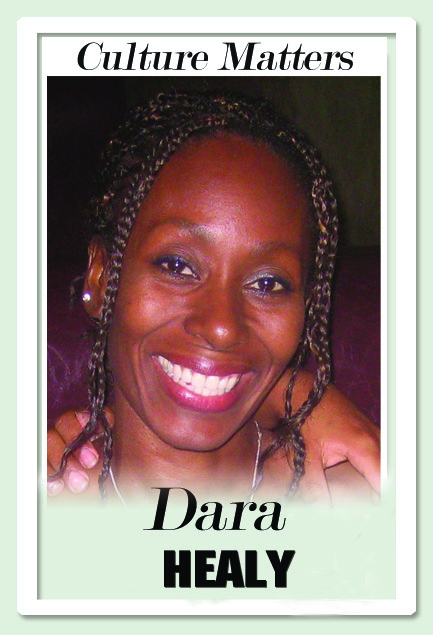High-stepping into a new vision of Caribbean arts

Culture Matters
I DID a Google search. I had read that someone from TT was now on the immensely popular American talent programme called The Voice. What followed was me screaming at the screen as Paige “Payge Turner” Roopchan dipped in and out between deep tones and elevated notes, confidently high-stepping across the stage as she delivered her chosen piece. I felt as though all of us were up there on stage with her.
I thought about other Caribbean people who have had an opportunity to showcase their talent on a global stage. In 2014, when Tessanne Chin of Jamaica appeared on The Voice, it took Christina Aguilera less than 15 seconds to hit the buzzer to indicate she liked what she was hearing. It took less than 30 seconds for all four panellists to turn to face the woman with the vocals that amazed them. Adam Levine was prophetic when he said to Tessane, “You could easily win Voice this year.”
How have international successes by Caribbean people advanced the creative sector in the region? If one knows where to look, we may be found at the highest levels of our chosen fields. Grace Jones, supermodel and actress from Jamaica. TT national Geoffrey Holder, villain in a James Bond film as early as the 1970s. Guyanese Letitia Wright and Tobagonian Winston Duke, actors in the international film sensation Black Panther. Heather Headley, TT-born Grammy and Tony winner. Jada Pinkett-Smith, media and entertainment powerhouse with Jamaican and Barbadian ancestry. VS Naipaul, Nobel laureate, TT national. Beyonce Knowles, Bahamian father.
Mia Mottley, Prime Minister of Barbados, recently acknowledged our formidable presence. She evoked the “cultural confidence” of Peter Minshall when he showcased Carnival culture and his ability to innovate at the 1992 Barcelona Olympics amongst other signature global events.
She also spoke passionately about new opportunities for innovation in our covid19 reality. “We must have the cultural confidence to develop technologies of our own kind on a timeline that plays to our strengths and which captures the imagination of our own people...That will allow us to overcome our small population, our small economy, our vulnerability to natural disasters and our very difficult history of slavery and colonialism.”
How do we bring successful Caribbean creatives into this vision of the future? While we are grateful for initiatives like the Machel Montano Foundation for Greatness, I have heard of few internationally successful Caribbean artists establishing a fund, institutes of learning or scholarships intended to carve out a path for others to follow in the footsteps of their success.
Further, governments must establish partnerships with powerful artists to empower our sector and the people of the region. In the 21st century, we still have no Carnival museum and no concert space for pan. More must be done to foster calypso as a tool of resilience and unity.
I did another Google search. Before I even finished typing Rum and Coca-Cola, the song by the Andrews Sisters appeared. What followed was me steupsing, then typing in Rum and Coca-Cola, Lord Invader. “Deh buy rum and Coca-Cola/Went down Point Cumana/Both mothers and daughters/Workin’ fuh deh Yankey dollar.”
Written in the early 1940s, this calypso documented shifting morals in Trinidad as a result of the occupation by American soldiers. Unbelievably, Invader’s song was adapted (stolen) and in 1945, the version by the Andrews Sisters reached #1 on the Billboard charts.
The point is, Caribbean artists have always been connected to this space. The irony is that we often look outwards not just for success, but for validation. We try to adopt the systems of Hollywood or standards of The Voice. The world already knows about us, to the point where attempts are constantly made to pilfer our culture. Lord Invader’s story ended well when he won a copyright infringement action. Others have not been so fortunate.
So is this where the intervention by famous Caribbean artistes may begin? Why is there no Caribbean-driven global award for excellence in the arts? Who speaks for us when our work is stolen? How can we move away from external definitions of how our culture should be presented to the world?
From the first note, brushstroke, freestyle or chutney wine-down-low, the world already knows our talent. Let us tap into the combined power of famous Caribbean artistes and watch the world scream at our infinite talent. Let them search for us, turn their chairs and look at us. Let us show the world who we are, with confidence and on our terms.
Dara E Healy is a performance artist, communications specialist and founder of the NGO, the Indigenous Creative Arts Network – ICAN


Comments
"High-stepping into a new vision of Caribbean arts"